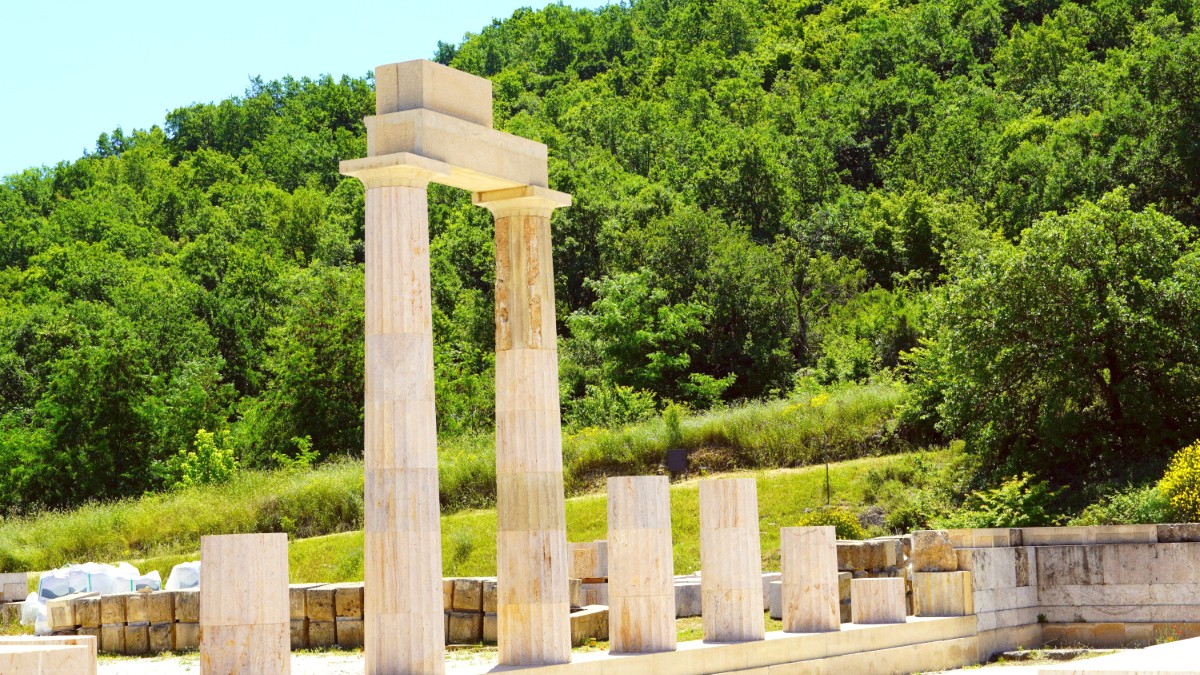
Greece
The region presents distinct seasons, each offering different opportunities.
Spring (April-May): Mild temperatures (15-25°C). Moderate rainfall. Ideal for archaeological sites and city exploration. Countryside blossoms with wildflowers. Evenings cool.
Summer (June-August): Hot and dry (28-35°C+), particularly July and August. Coastal areas benefit from sea breezes. Prime time for beach holidays and water activities.
Autumn (September-October): Pleasant temperatures (18-28°C), lower humidity. Rainfall gradually builds. Early autumn has warm seas and fewer crowds. Late autumn presents crisp air and changing foliage.
Winter (November-March): Cool to cold (5-15°C). Significant rainfall. Snowfall common in mountains, offering winter sports. Lower prices and fewer tourists.
Match your travel dates to your preferred activities for the best experience.
Beach holidays (Chalkidiki): June-early September for warm sea temperatures.
City sightseeing (Thessaloniki): April, May, September, October for comfortable temperatures.
Hiking (Mount Olympus): Late May-early October. Mytikas summit access July-August, requires experience.
Skiing: December-March for ski resorts like Kaimaktsalan and Seli.
Archaeological sites: April, May, June, September, October. Avoid midday summer heat.
Summer months
Pay attention to local news and alerts. Avoid discarding cigarette butts or starting fires in dry areas.
Concerns in hot, dry forested areas, notably in summer.
Periodic occurrences
Familiarize yourself with basic earthquake safety: "Drop, Cover, Hold On."
Most are minor and cause no disruption, but preparedness is wise.
Tailor your trip
Maximize enjoyment by matching activities to optimal weather and crowd levels.
Some services may have limited hours or close entirely in low season.
Greece is part of the Schengen Area, impacting visa and entry requirements for different nationalities. Citizens of many countries outside the EU/EEA, including India, China, Russia, and South Africa, require a Schengen visa for short stays (up to 90 days in any 180-day period). Apply at the Greek embassy or consulate in your country of residence well in advance. Visa-exempt travelers from countries like the United States, Canada, the United Kingdom, Australia, and New Zealand do not require a Schengen visa for stays up to 90 days. As of mid-2025, these visa-exempt travelers will need to apply for an ETIAS authorization prior to travel.
A valid passport is necessary, remaining valid for at least three months beyond your intended departure date from the Schengen Area, issued within the last 10 years, and with at least two blank pages. If a visa is required, present proof of your valid Schengen visa. Carry proof of accommodation and demonstrate sufficient funds. A return or onward ticket is also part of the requirements. Travel insurance is mandatory for Schengen visa applicants, covering medical emergencies and repatriation for at least €30,000. It is a good idea for all travelers.
Valid for 3 months beyond departure, issued in last 10 years, 2 blank pages.
Required for specific nationalities; ETIAS for visa-exempt travelers from mid-2025.
Mandatory for Schengen visa, recommended for all (min. €30,000 medical coverage).
Bank statements or credit cards to show financial capacity for your stay.
Confirmation of your departure from the Schengen Area.
The Euro (€) serves as the currency. ATMs are widely available in cities and larger towns. Credit and debit cards (Visa, Mastercard, Maestro) are widely accepted. Carry some cash for smaller purchases or rural areas. Inform your bank of your travel plans to avoid card issues.
These are average daily estimates, excluding international flights.
Estimates for Thessaloniki and wider Macedonia region.
Prioritize your well-being with these health and safety guidelines.
Greece generally is a high level of safety for tourists. Petty crime, like pickpocketing, can occur in crowded areas. Remain aware of your belongings, especially in Thessaloniki's bustling markets and public transport. Avoid walking alone late at night in less-trafficked areas, specifically around the main train station in Thessaloniki.
Earthquakes: Greece is an active seismic zone. Most earthquakes are minor, but it is wise to be aware of safety procedures: "Drop, Cover, Hold On."
Wildfires: A risk during hot, dry summer months, especially in forested and rural areas. Pay close attention to local warnings and news updates. Avoid discarding cigarette butts or starting fires.
| Category | Product/Service | Link |
|---|---|---|
| Water Filtration | LifeStraw for clean drinking water. | LifeStraw.com |
| First Aid | First aid supplies for unexpected incidents. | AdventureMedicalKits.com |
| Security | Anti-theft bags and travel security products. | Pacsafe.com |